Peanut butter is a staple in many households. It is a versatile food that can be used in sandwiches, smoothies, and baked goods. But what happens to your body if you eat peanut butter every day?
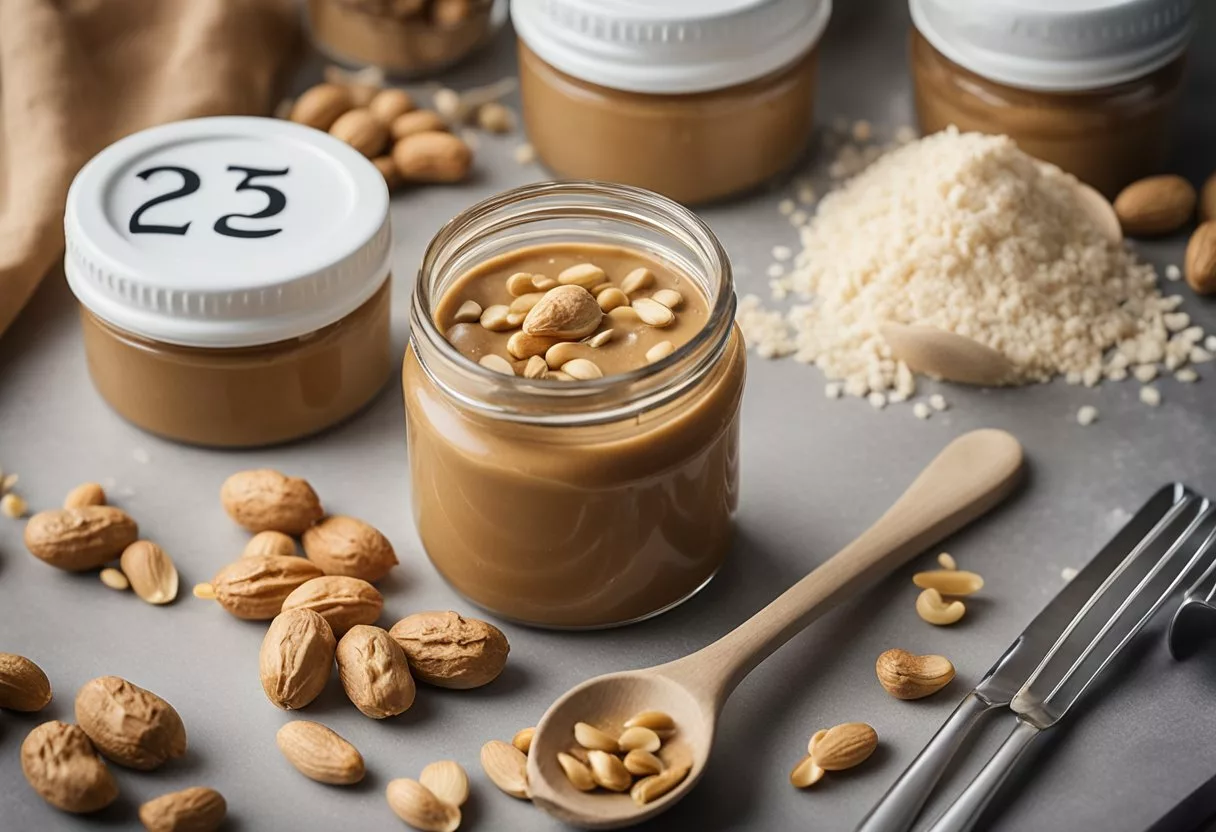
Peanut butter is a good source of protein, healthy fats, fiber, and vitamins. It is also low in carbohydrates, making it a popular choice for people following a low-carb diet. However, peanut butter is also high in calories, so it is important to be mindful of portion sizes.
Research suggests that eating peanut butter every day can have several health benefits. For example, it may help improve cholesterol levels, reduce the risk of heart disease, and promote weight loss. However, it is important to note that not all peanut butter is created equal. Some brands contain added sugar, salt, and unhealthy oils, which can negate the health benefits.
Nutritional Breakdown of Peanut Butter
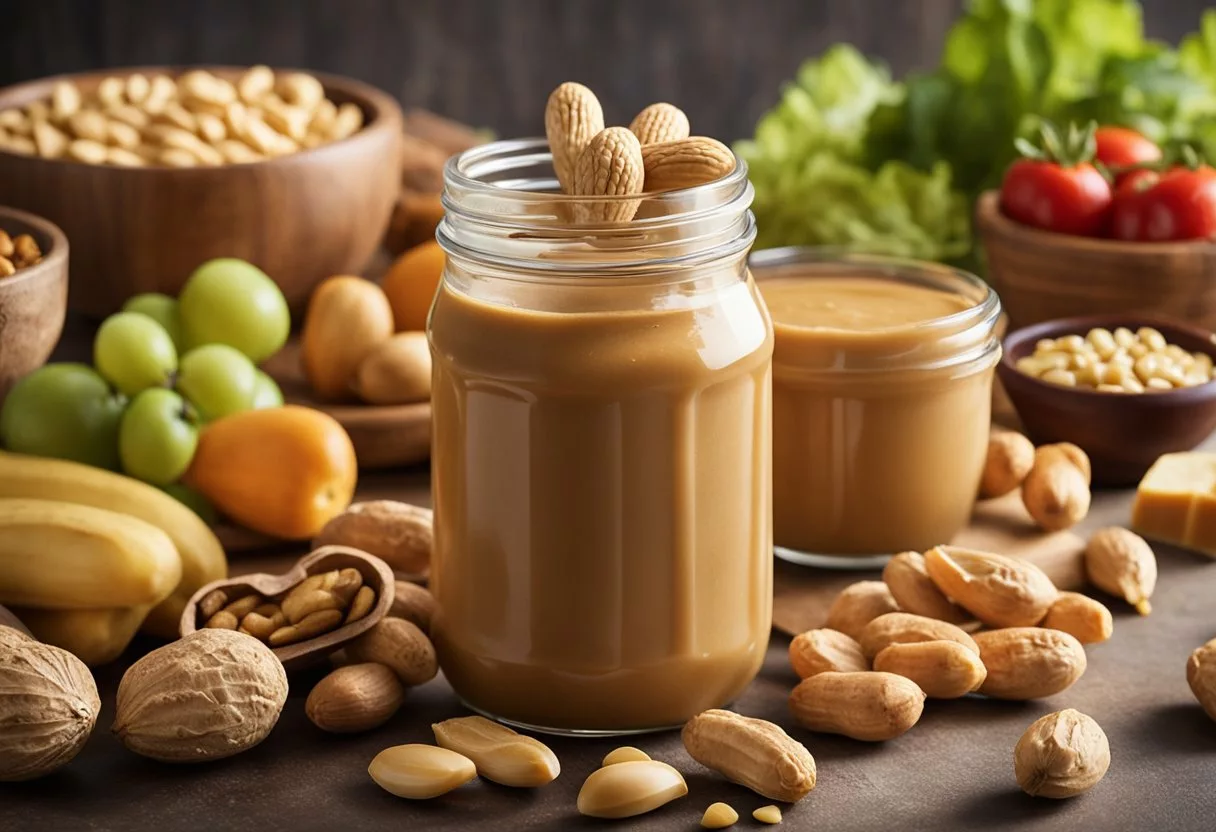
Macronutrients in Peanut Butter
Peanut butter is a rich source of macronutrients, including protein, fiber, and healthy fats. A two-tablespoon serving of peanut butter contains approximately 7 grams of protein, making it a great option for vegetarians and vegans who need to increase their protein intake. Peanut butter is also high in fiber, with approximately 2 grams per serving. Fiber is essential for maintaining digestive health and can help reduce the risk of chronic diseases such as heart disease and diabetes.
Peanut butter is also high in calories, with approximately 190 calories per serving. However, the high calorie content is due to the high fat content in peanut butter, which is primarily made up of healthy unsaturated fats. These unsaturated fats are beneficial for heart health and can help lower cholesterol levels.
Vitamins and Minerals in Peanut Butter
In addition to macronutrients, peanut butter is also a good source of vitamins and minerals. One of the most important vitamins in peanut butter is vitamin E, which is a powerful antioxidant that helps protect cells from damage. A two-tablespoon serving of peanut butter contains approximately 2 milligrams of vitamin E, which is about 10% of the recommended daily intake.
Peanut butter is also rich in minerals such as magnesium, which is important for bone health and muscle function. A two-tablespoon serving of peanut butter contains approximately 50 milligrams of magnesium, which is about 12% of the recommended daily intake.
Overall, peanut butter is a nutritious food that can provide many health benefits when consumed in moderation. It is high in protein, fiber, healthy fats, and important vitamins and minerals. However, it is also high in calories, so it is important to consume it in moderation as part of a balanced diet.
Health Benefits of Regular Peanut Butter Consumption
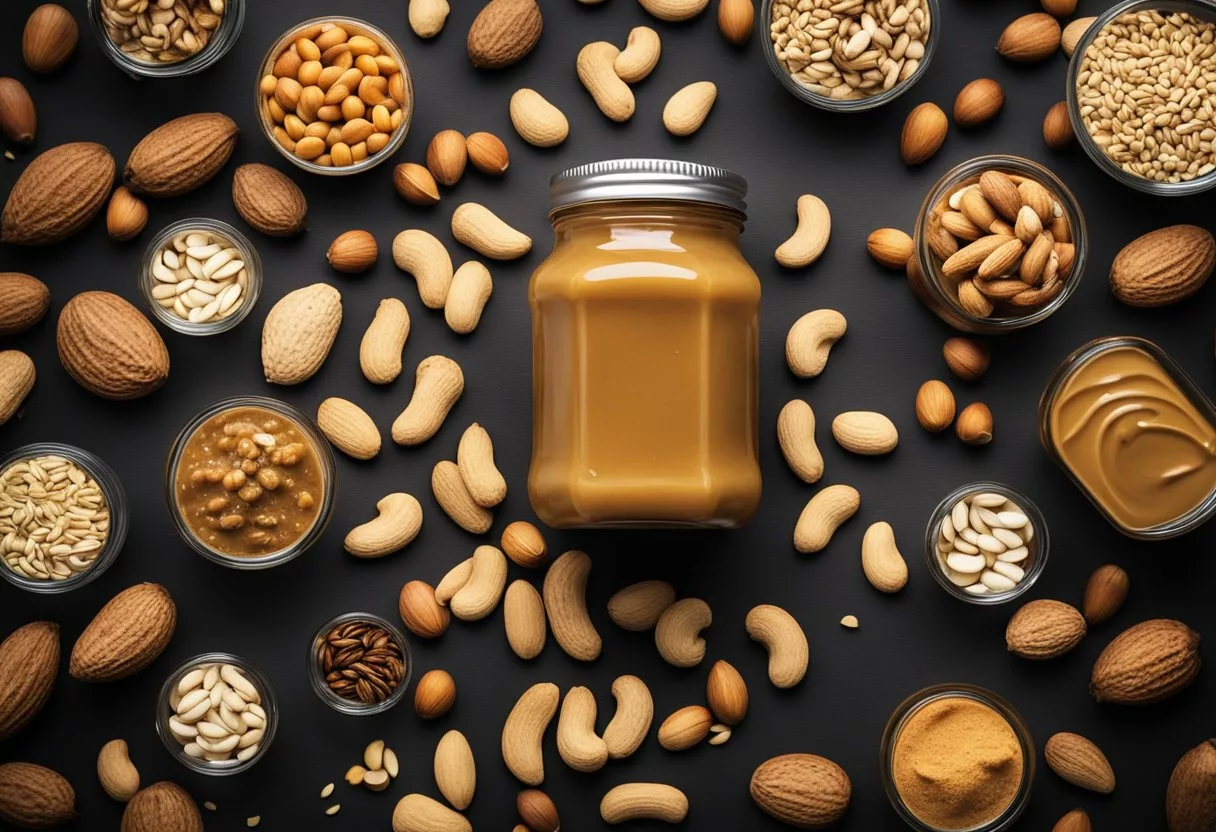
Peanut butter is a delicious and nutritious food that can provide numerous health benefits when consumed regularly. Here are some of the most notable benefits of adding peanut butter to your diet:
Heart Health Advantages
Regular peanut butter consumption can be beneficial for heart health. According to WebMD, one of the main fats in peanut butter is oleic acid, which can help maintain good cholesterol, blood sugar, and blood pressure levels. Additionally, peanut butter is a rich source of monounsaturated fats, which can help lower LDL (harmful) cholesterol and triglyceride levels, as per EatingWell.
Weight Management and Satiety
Peanut butter can also help with weight management and satiety. The high protein and healthy fat content of peanut butter can help keep you feeling full for longer periods, which can help prevent overeating and promote weight loss. Additionally, according to The List, regular peanut butter consumption can increase your resting metabolic rate, which can help burn more calories throughout the day.
Blood Sugar Control
Peanut butter can also be beneficial for blood sugar control. The high protein and healthy fat content of peanut butter can help slow down the absorption of carbohydrates in the bloodstream, which can help prevent spikes in blood sugar levels. Additionally, according to Verywell Health, peanut butter is a good source of magnesium, which can help improve insulin sensitivity and regulate blood sugar levels.
Skin and Hair Health
Peanut butter is also rich in vitamins and antioxidants that can help promote skin and hair health. According to Parade, peanut butter is a good source of vitamin E, which can help protect the skin from sun damage and premature aging. Additionally, peanut butter contains resveratrol, an antioxidant that can help prevent cell damage and reduce the risk of certain cancers.
Overall, regular peanut butter consumption can provide numerous health benefits, including heart health, weight management, blood sugar control, and skin and hair health. However, it is important to consume peanut butter in moderation, as it is high in calories and fat.
Potential Risks and Considerations
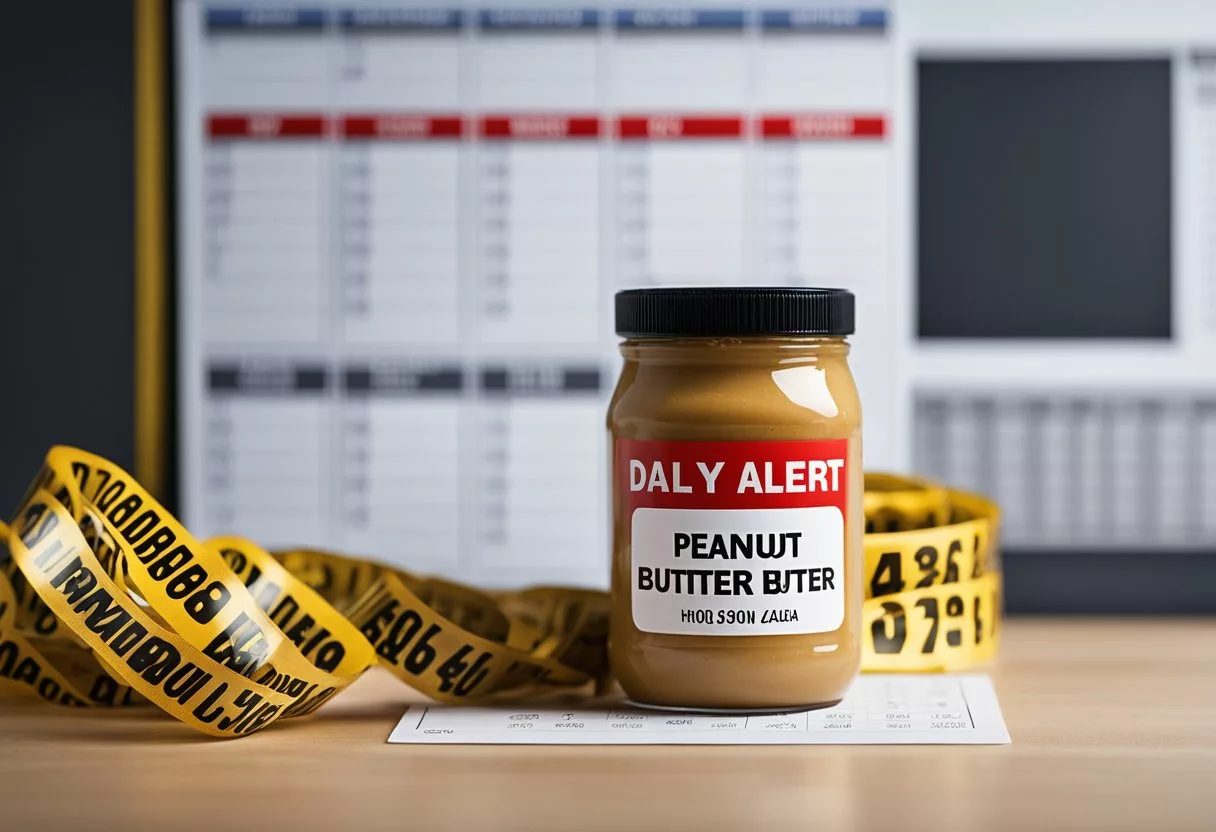
Allergies and Sensitivities
While peanut butter can be a nutritious addition to a balanced diet, it is important to note that some individuals may have a peanut allergy or sensitivity. According to a search result from Healthline, peanut allergy is one of the most common food allergies and can cause severe and potentially life-threatening reactions. It is essential for individuals with a peanut allergy to avoid consuming peanut butter and other peanut-containing products.
Added Sugars and Fats
Some brands of peanut butter may contain added sugars and fats, which can contribute to weight gain and increase the risk of chronic diseases such as type 2 diabetes and heart disease. It is important to read the nutrition label and ingredient list carefully when choosing a peanut butter product. Opting for natural peanut butter with no added sugars or oils is a healthier choice.
Sodium Content and Blood Pressure
Peanut butter can also be high in sodium, which can contribute to high blood pressure. According to a search result from WebMD, individuals with high blood pressure should choose a low-sodium peanut butter or limit their intake of peanut butter altogether. It is important to read the nutrition label and choose a peanut butter product with a lower sodium content.
In conclusion, while peanut butter can be a healthy addition to a balanced diet, it is important to consider potential risks and limitations. Individuals with a peanut allergy should avoid consuming peanut butter, and those concerned about added sugars, fats, and sodium should read the nutrition label carefully and choose a healthier peanut butter product.
Choosing the Right Peanut Butter
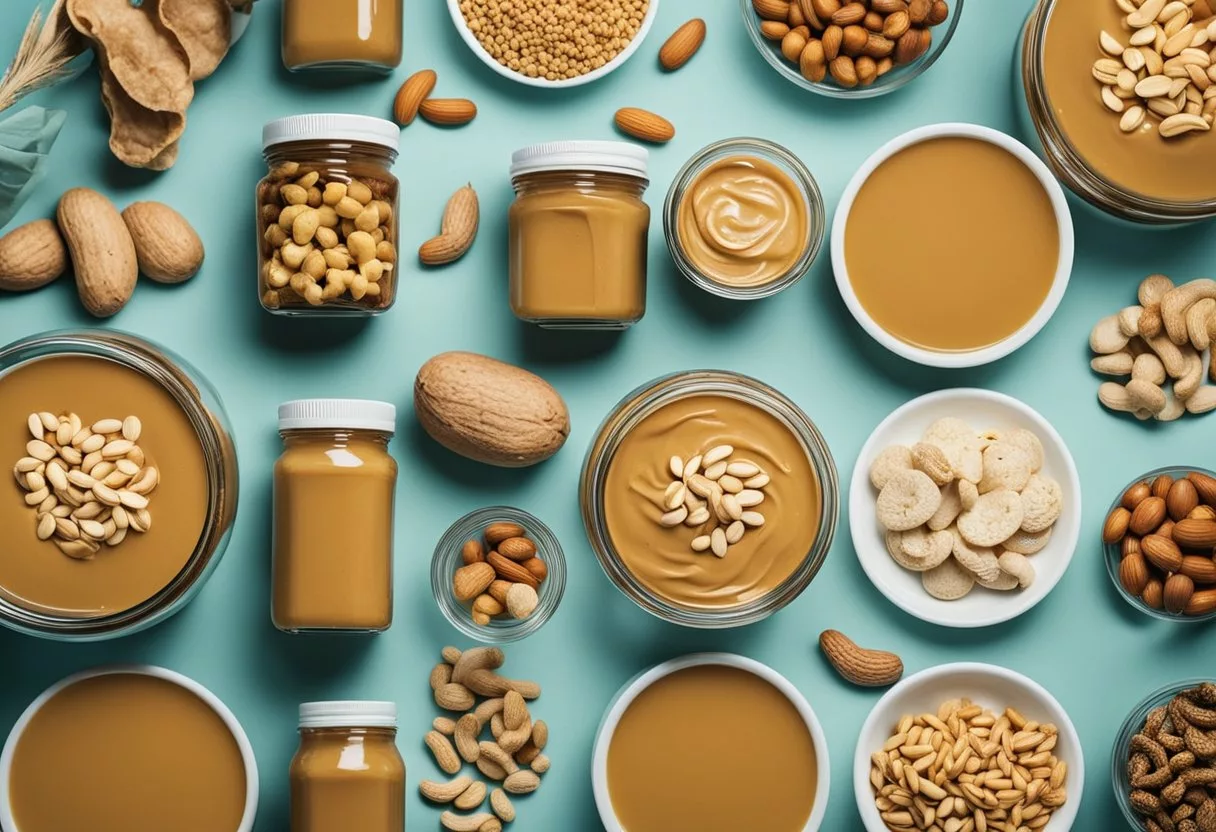
When it comes to choosing the right peanut butter, there are several factors to consider, including the label and the ingredients. In this section, we will explore some key points to keep in mind when selecting peanut butter for everyday consumption.
Understanding Labels and Ingredients
Reading the label is an essential step in choosing the right peanut butter. It is important to look for peanut butter that contains only peanuts or peanuts and salt. Avoid peanut butter that contains additives or fillers, such as sugar, corn syrup, or hydrogenated vegetable oil. These additives can increase the calorie count and reduce the nutritional value of peanut butter.
When shopping for peanut butter, look for products that are labeled “natural.” Natural peanut butter is made with only peanuts and salt and does not contain any additives or preservatives. While natural peanut butter may have a slightly different texture and taste than processed peanut butter, it is a healthier option that provides more nutritional benefits.
Natural vs. Processed Options
Processed peanut butter is made by adding sugar, salt, and hydrogenated vegetable oil to ground peanuts. This type of peanut butter has a smoother texture and is easier to spread than natural peanut butter. However, processed peanut butter is higher in calories and contains more additives than natural peanut butter.
Natural peanut butter, on the other hand, is made from ground peanuts and salt, and does not contain any additives or preservatives. It is a healthier option that provides more nutritional benefits, including healthy fats, protein, and fiber. While natural peanut butter may have a slightly different texture and taste than processed peanut butter, it is a great option for those looking to maintain a healthy diet.
When choosing between natural and processed peanut butter, it is important to consider your personal dietary preferences and needs. If you are looking for a healthier option that provides more nutritional benefits, natural peanut butter is the way to go. However, if you prefer a smoother texture and easier-to-spread option, processed peanut butter may be a better choice.
Incorporating Peanut Butter into Your Diet
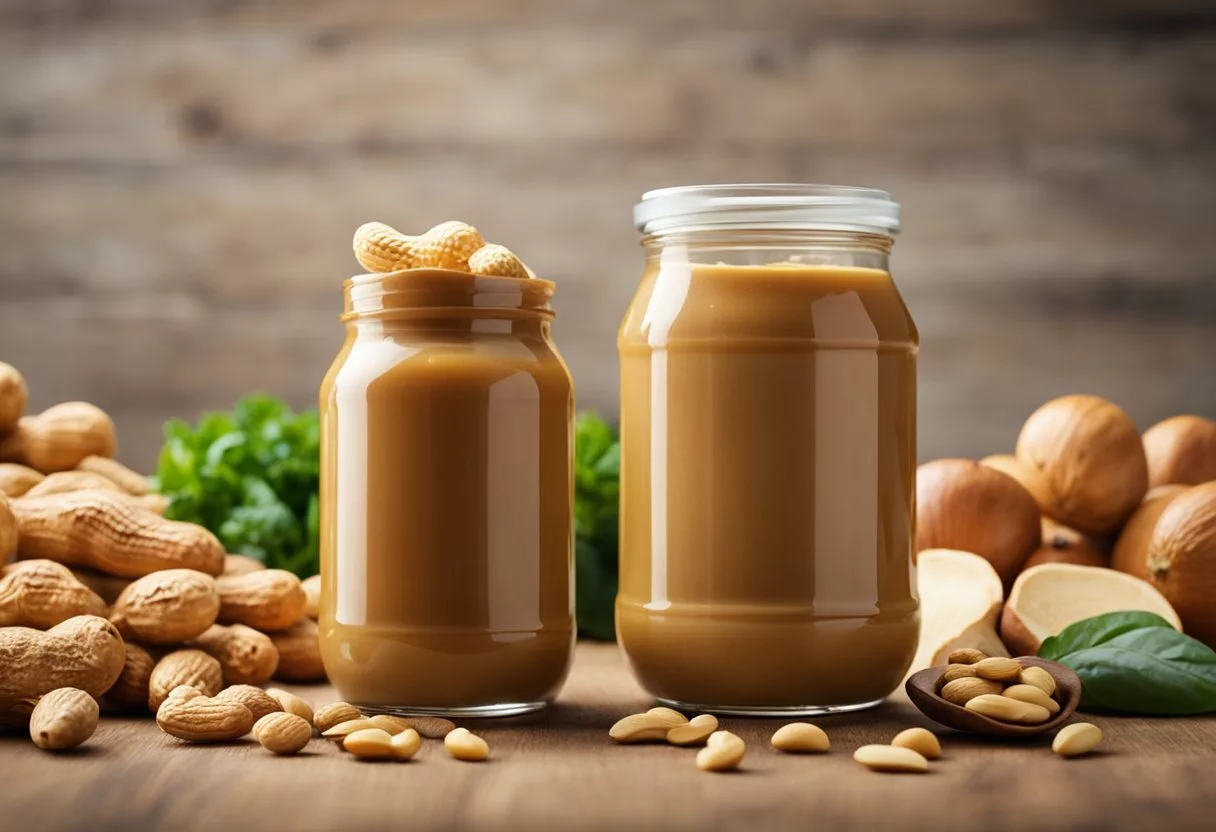
Balanced Diet Integration
While peanut butter has many health benefits, it is important to consume it in moderation and as part of a balanced diet. Peanut butter is high in calories and fat, so it should be consumed in moderation to avoid weight gain. It is recommended that one serving size of peanut butter is two tablespoons, which contains around 190 calories and 16 grams of fat source 1.
To integrate peanut butter into a balanced diet, one can pair it with a variety of healthy foods. For example, peanut butter can be spread on apple slices or bananas for a healthy snack. It can also be added to yogurt for a protein and flavor boost. By pairing peanut butter with other healthy foods, one can create a balanced and nutritious meal or snack.
Creative Peanut Butter Pairings
Peanut butter can be used in a variety of creative ways to add flavor and nutrition to meals. For example, it can be used as a dip for vegetables such as celery or carrots. It can also be added to smoothies for a protein boost and a creamy texture. Peanut butter can also be used as a spread on whole grain toast or as a topping for oatmeal or yogurt bowls.
By incorporating peanut butter into creative and nutritious meals and snacks, one can enjoy the health benefits of peanut butter while also maintaining a balanced diet. It is important to keep in mind that while peanut butter can be a healthy addition to one’s diet, it should be consumed in moderation and as part of a balanced diet.
Conclusion
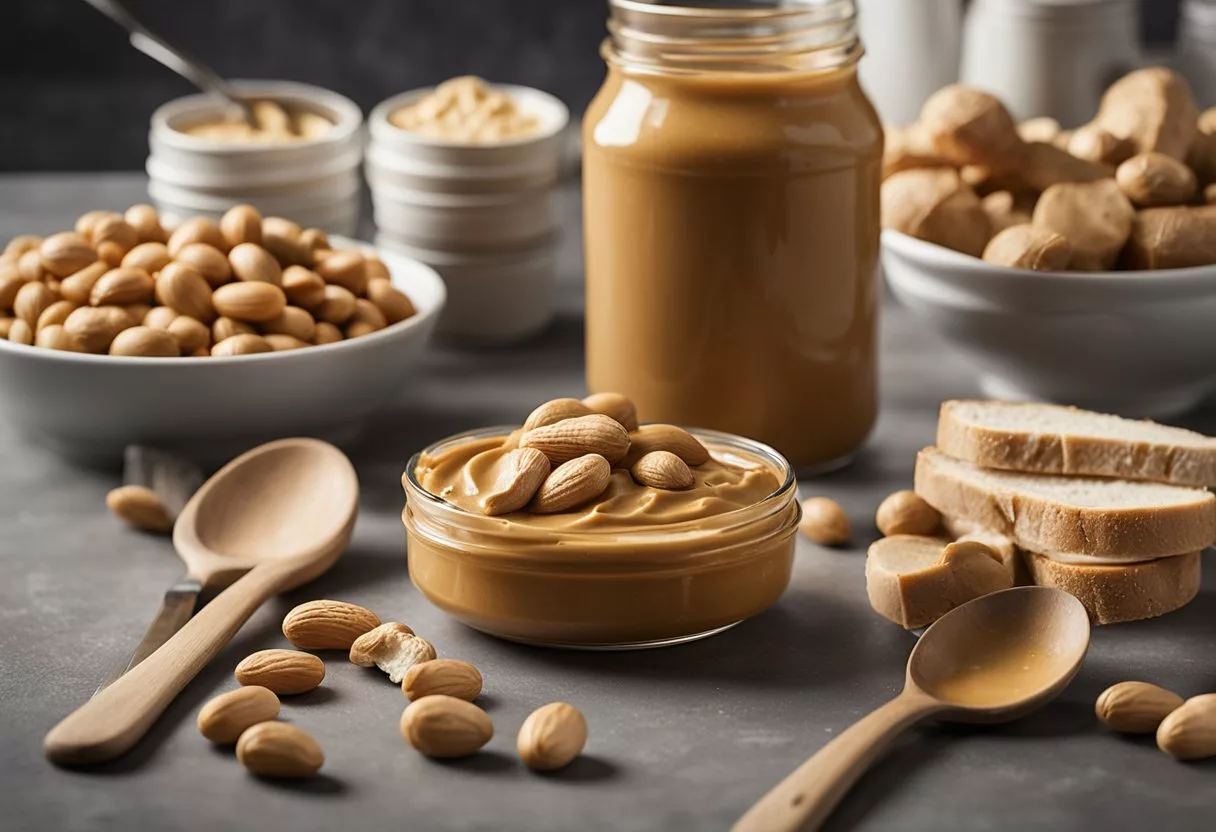
In conclusion, eating peanut butter every day can have a positive impact on one’s health due to its nutritious and heart-healthy properties. Peanut butter is a protein-packed food that contains a variety of essential nutrients, including vitamin E, magnesium, and potassium. It also has a favorable nutritional profile, containing healthy fats, fiber, and protein.
Research shows that regularly consuming peanut butter can improve cholesterol levels, which is beneficial for heart health. Additionally, the healthy fats in peanut butter, particularly oleic acid, can help maintain healthy blood pressure and reduce the risk of heart disease.
While peanut butter is a nutritious food, it is important to consume it in moderation due to its high calorie and fat content. One serving of peanut butter is typically two tablespoons, which contains around 190 calories and 16 grams of fat. Therefore, it is recommended to consume peanut butter as part of a balanced diet and to pay attention to portion sizes.
Overall, incorporating peanut butter into one’s diet can provide numerous health benefits, but it is important to consume it in moderation and as part of a balanced diet.